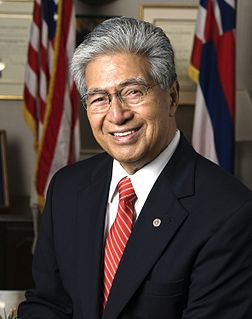A Quote by Tedros Adhanom
Strong health and disease surveillance systems halt epidemics that take lives, disrupt economies, and pose global health security threats.
Related Quotes
The specter of climate change threatens worsening natural disasters, rapid urbanization, forced migration, and economic hardship for the most vulnerable. Despite significant global advances, inability to effectively address epidemics and health emergencies still prevail and continuously threaten global health security and economic development.
There are environmental threats to health; there are internal threats to health - genetic conditions, viral threats, diseases like cancer and Parkinson's. And then there are societal and global ones, like poverty and lack of nutrition. And unknown viral threats - everything from a new kind of influenza to hemorrhagic fever.
The president recognizes that funding global health is good for national security, domestic health and global diplomacy. Consequently, President Obama has steadily increased funding for the President's Emergency Plan for AIDS Relief, or PEPFAR, which was created by President Bush and has strong bipartisan support.
New, unfamiliar, and mysterious threats to our health are scary. At the Centers for Disease Control and Prevention - where we identify, on average, one new health threat each year - we work around the clock with an approach that prioritizes finding out what we need to know as fast as we can to protect Americans.
Health is more than absence of disease; it is about economics, education, environment, empowerment, and community. The health and well being of the people is critically dependent upon the health system that serves them. It must provide the best possible health with the least disparities and respond equally well to everyone.




























